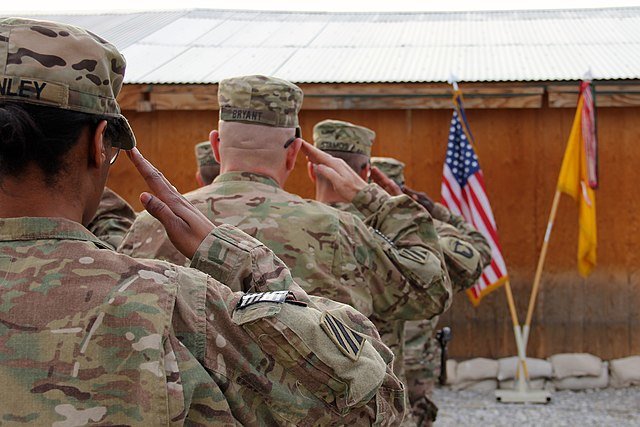As Afghan War comes to end, local vets feel betrayal, anger
Many of the more than 4 million American armed forces veterans or active-duty personnel who have served in the 20 years since the terrorist attacks of Sept. 11 are battling a sense of heartbreak, frustration and confusion after the U.S. withdrawal from Afghanistan and the Taliban takeover of the country — the same Taliban that harbored Al Qaeda terrorists who planned the attacks.
“The troop pullout is a real tragedy — we never should have left,” Robert Bazan, a former commander of Glenwood Landing American Legion Post 336, said. “Pulling out created a vacuum in the country that allowed the Taliban back into power.” Bazan, a retired Navy captain from Glenwood Landing, was deployed to Afghanistan in 2008 and served there for about a year.
President Biden followed through on his promise to remove American troops from Afghanistan once and for all, after noting that Al Qaeda’s founder, Osama bin Laden, was killed over a decade ago. After U.S. forces stayed in the country for another decade, Biden decided it was time to end the war.
“I refused to continue in a war that was no longer in the service of the vital national interest of our people,” Biden said in a speech on Aug. 31, announcing that the last of the American troops had left Afghanistan. “I simply do not believe that the safety and security of America is enhanced by continuing to deploy thousands of American troops and spending billions of dollars a year in Afghanistan.”
Researchers at Brown University estimate the U.S. has spent more than $2.2 trillion on the conflict in Afghanistan since it began in 2001.
The U.S. invaded Afghanistan in October 2001 to oust the Taliban, which the Bush administration said was harboring bin Laden and other Al Qaeda figures linked to the 9/11 attacks. Since then, American forces have tried to ensure the country’s long-term security, democracy and prosperity, but veterans say their post-9/11 experiences left them frustrated not only with the long, grinding involvement in Afghanistan, but also with the American government’s flawed justifications for the Iraq War, which began in 2003.
“It’s all politically motivated, to grab headlines,” Bazan said. “The [Afghanistan] pullout isn’t serving the interest of American foreign policy or national security, and [is] allowing the Taliban to resurge in the country, almost definitely leading to further conflicts.”
“With the 9/11 anniversary coming up, I think whoever was involved got major political points for pulling out,” said Luke Whitting, of Glen Head, a corporal infantryman who served in Afghanistan in 2017 and 2018. “It was an absolutely terrible idea, and gave the Taliban all the propaganda they needed against America.”
NATO formally ended its combat mission in Afghanistan in December 2014, but kept around 13,000 troops there to help train Afghan forces and support counterterrorism operations. “We stopped combat in 2014 but stayed to provide training and humanitarian assistance for the national army and police,” Bazan said. “There was no reason for us to leave — we were there in a supportive role to help keep the Afghan government stabilized. Withdrawing from Afghanistan left the entire country, and civilians who helped support the U.S., without support and fearful for their own lives.”
Now, in the absence of American troops, the Taliban has regained control of the country, prompting many to fear that all of the progress made in stabilizing the country will be lost. “I believe Afghanistan made a lot of strides in the last 20 years,” Whitting said. “Women have a lot more rights today than they did 20 years ago. We definitely did a lot of good over there. It’s heartbreaking to see how it’s all going back to how it was pre-9/11.”

 63.0°,
A Few Clouds and Breezy
63.0°,
A Few Clouds and Breezy 




